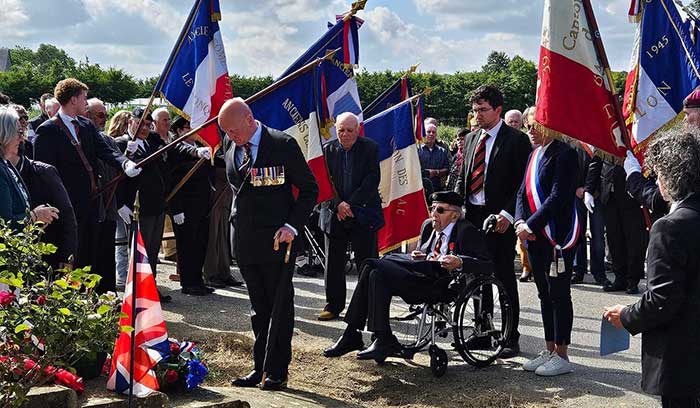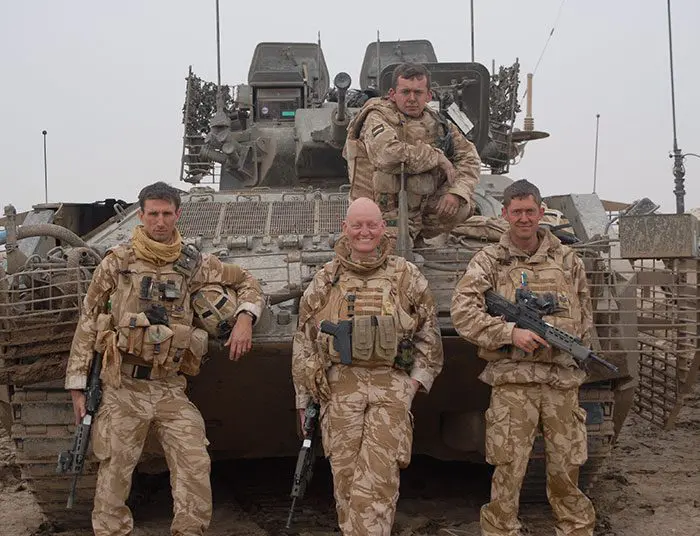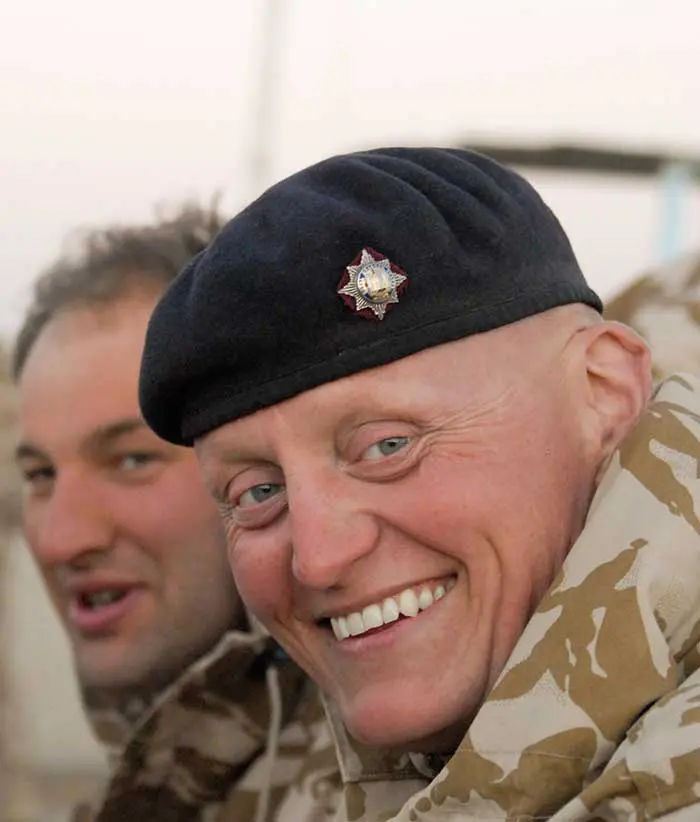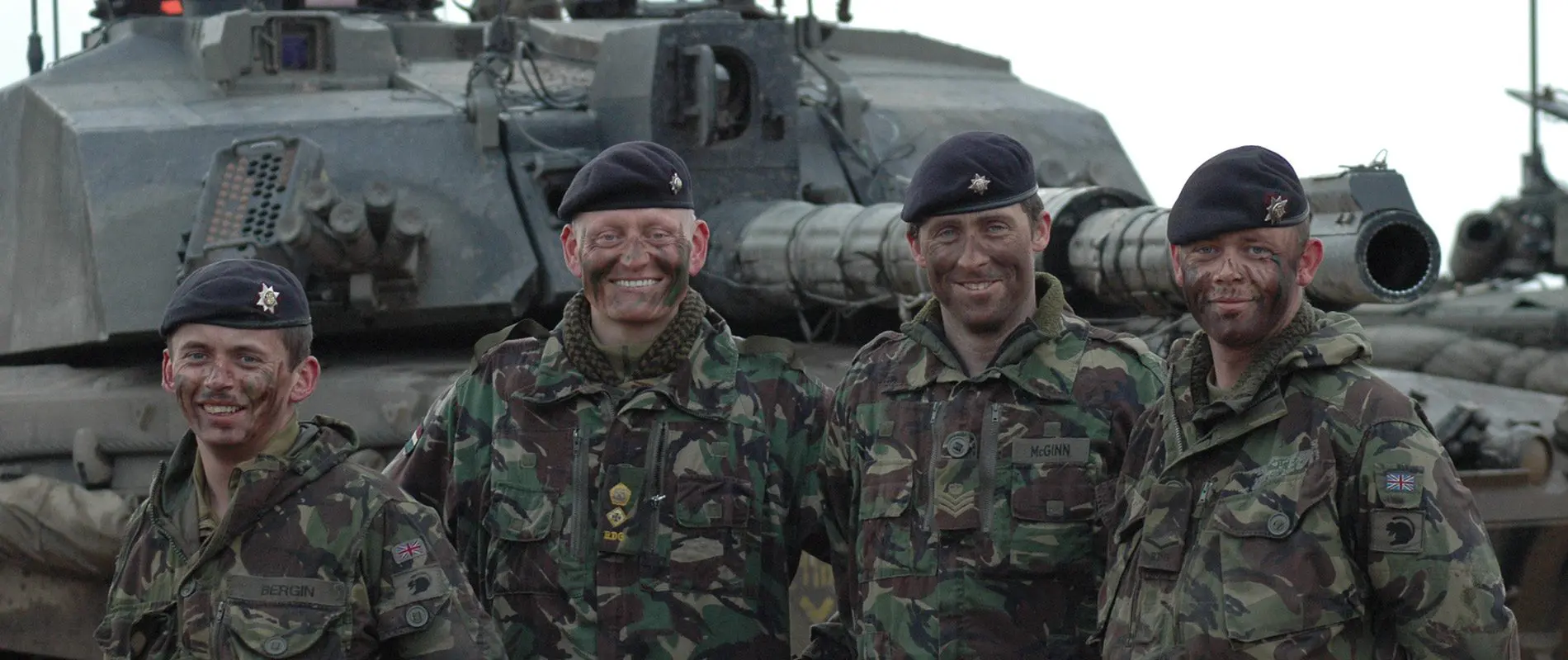“At just before 0730hrs on 6th June 1944, tanks from my Regiment were the first ashore on Gold Beach during the D Day Landings.”
In addition to his role as Chief Executive of the Army Benevolent Fund (ABF), Major General Tim Hyams is Colonel of the Regiment of The Royal Dragoon Guards; the Regiment in which he served throughout his British Army career.
The link between being Chief Executive of the ABF and Colonel of his Regiment, and between D Day and the formation of the ABF, is a direct one. “It was in 1944, as the campaign in Normandy was being fought by my Regiment and many others, that Churchill’s War Cabinet decided there was a requirement for the Army to have a national charity to look after the soldiers who fought so valiantly during World War Two.”
“Our founding purpose in 1944 remains the same now, eighty years later: to provide a lifetime of support to serving solders, former solders and their immediate families (including the bereaved) when they fall into need, so they can live with independence and dignity.”
Major General Hyams has also pledged a gift in his own Will, so that the ABF’s vital care and support for the Army family may continue. “Last time I looked, the need for an Army is not going to go away; so, as the Army’s national charity, we are here for the long term.”

“It is particularly important when someone feels moved to pledge us a gift in their Will, because this creates an enduring legacy of their support for the Army family.”
Tim served a full 35-year career in the Army; and, 38-years after commissioning from the Royal Military Academy Sandhurst, he continues to serve as Colonel to two regiments: his own, and The Queen’s Own Yeomanry.

“Central to my time in uniform have been the soldiers. As a cavalryman, my experience is of a relationship between all ranks characterised by an appropriate informality; where loyalty rather than deference is given to those who earn it on the basis of professional and personal worth. The result is a close bond developed through the mutual trust and dependency derived from serving together as the crews of armoured vehicles.”
“Those close bonds between our people are why, uniquely in the British Army, rather than marking a Battle Honour, The Royal Dragoon Guards commemorates the example set by an individual member of the Regiment. Captain Lawrence Edward Grace Oates fought with distinction in the Boer War. Later, during Scott’s Expedition to the South Pole, he gave his life in an attempt to save his comrades. It was an act that epitomises the professional and personal standards to which we in the modern Regiment aspire, and which exemplifies the Army’s values of courage, discipline, respect for others, integrity, loyalty, and selfless commitment.”
Describing what he believes is the most important aspect of the ABF’s work, Major General Hyams is clear that, “it is that same focus on the Army’s people, and more specifically, ensuring those who fall into need are supported, so that they can live with independence and dignity.
That support comes through the combination of the Charity’s individual grants programme, supporting the regimental and corps charities to meet the immediate needs of their people, and through making grants to other charities and organisations that provide specialist support to members of the Army family; be that in terms of mental health, employment, housing, elderly care, independent living, or looking after families.

In both cases, our assurance system is such that every grant request is assessed rigorously to ensure it achieves the stated objectives and leads to required outcomes. And we work behind the scenes to support, influence, and develop the military charity sector in its widest sense. So, I hope people feel reassured that they can trust us to use their money in the most productive way to support the whole Army family in a coherent and effective manner.”
Tim was at pains to stress that, “in all of this, we are very clear there is a value in service and that those who serve in the Army gain values and skills from their service which means they are in most cases net contributors to society. Our role is to help those relatively few who need assistance so they also can overcome challenges and make a similar contribution.”
And in that context, Tim is extremely conscious of the critical importance of the donations made by the Charity’s supporters. “We rely almost exclusively on the generosity of our amazing supporters. Regardless of how big or small a donation happens to be, it makes a profound difference to people’s lives.”
“I cannot stress enough just how enormously grateful we are to all our supporters, who enable us to be here for soldiers, for life.”

